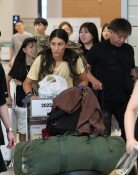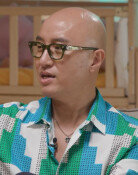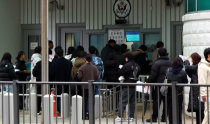Acting president appoints constitutional court justices with ties to Yoon
Acting president appoints constitutional court justices with ties to Yoon
Posted April. 09, 2025 07:43,
Updated April. 09, 2025 07:43
On April 8, Acting President Han Duck-soo nominated Lee Wan-kyu, chief of the Ministry of Government Legislation, and Ham Sang-hoon, a senior judge at the Seoul High Court, to fill two vacant seats on the Constitutional Court. The announcement came just 10 days before the terms of acting Constitutional Court President Moon Hyung-bae and Justice Lee Mi-sun were set to expire. It was made alongside the long-delayed nominations of Justice Ma Eun-hyuk to the Constitutional Court and Ma Yong-joo to the Supreme Court. Han cited concerns that prolonged vacancies could delay critical rulings, hinder preparations for the upcoming presidential election and supplementary budget, and further deepen national polarization. The Democratic Party of Korea called the move “an unconstitutional abuse of power” and vowed to challenge it through a jurisdictional dispute claim and an injunction.
Han’s sudden nomination of two new Constitutional Court justices has sparked significant political repercussions in a landscape already tense following the dismissal of former President Yoon Suk Yeol and the transition toward a presidential election. By exercising his appointment power simultaneously over Justice Ma Eun-hyuk, whose nomination has drawn opposition from the ruling party, and the two newly proposed justices—each opposed by the opposition—Han appears to be positioning the move as a gesture of political balance and as a necessary step to restore the court’s complete nine-member structure.
However, the acting president nominating justices to the Constitutional Court is unprecedented and represents a sharp departure from Han’s earlier stance. Late last year, Han had refused to appoint three Constitutional Court nominees elected by the National Assembly, stating he would wait for bipartisan consensus. That refusal led to an impeachment motion against him. Despite that prior inaction on a largely procedural appointment, he has now taken assertive steps to name two justices under the president’s direct authority.
The controversy deepens with the nomination of Lee Wan-kyu, a close associate of former President Yoon. Lee was Yoon’s classmate at Seoul National University Law School and the Judicial Research and Training Institute, as well as a fellow prosecutor. He also served as Yoon’s legal representative. On December 4, the day after the martial law scare, Lee reportedly attended a secret meeting that led the Democratic Party of Korea to label him a co-conspirator in a potential coup. Given these political associations, it is unsurprising that critics are questioning whether Han’s latest appointments were driven by ulterior motives or political ambitions.
Han’s office argues that when a president is only suspended, the acting president should exercise minimal powers just to keep the government running. But, once the president is officially removed from office, they believe the acting president can take on a broader range of responsibilities, similar to those of a full president. However, most legal experts maintain that the acting president’s powers should not significantly differ between a temporary suspension and a permanent removal. Many in the legal community view Han’s decision as unconstitutional, exceeding the limits of his authority.
If Han’s nominations are finalized, the ideological makeup of the Constitutional Court would shift from four progressives, three moderates, and two conservatives to four conservatives, three moderates, and two progressives. That would mark a major transformation in the court’s ideological balance—one initiated not by an elected president but by an unelected acting leader. Han is no longer an extension of the Yoon Suk Yeol administration but rather a caretaker for a two-month transitional period. His foremost responsibility is to manage the presidential election with fairness and neutrality, setting aside partisan interests. More than anyone, he must avoid becoming the source of political controversy.







